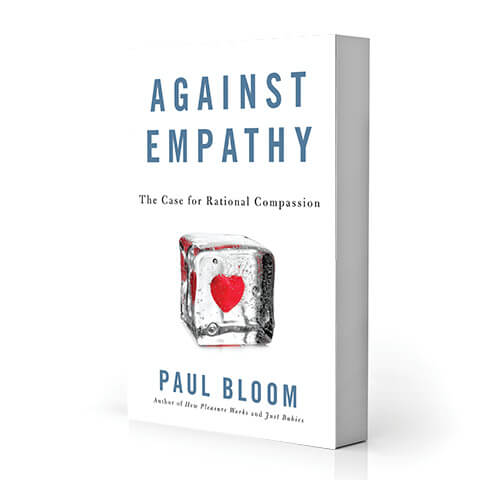 Our ability to empathize is usually recognized as a way to make the world a better place. But in this excerpt from his book Against Empathy, Yale researcher and psychologist Paul Bloom argues that the opposite is true.
Our ability to empathize is usually recognized as a way to make the world a better place. But in this excerpt from his book Against Empathy, Yale researcher and psychologist Paul Bloom argues that the opposite is true.
I wrote [this] book … because I believe our emotional nature has been oversold. We have gut feelings, but we also have the capacity to override them, to think through issues, including moral issues, and to come to conclusions that surprise us. I think this is where the ‘Empathy is biased, real action is. It’s what makes us distinctively human, and it gives us the potential to be better to one another, to create a world with less suffering and more flourishing and happiness….[H]ow could empathy steer us wrong? … Empathy is a spotlight focusing on certain people in the here and now. This makes us care more about them, but it leaves us insensitive to the long-term consequences of our acts and blind as well to the suffering of those we do not or cannot empathize with. Empathy is biased, pushing us in the direction of parochialism and racism. It is shortsighted, motivating actions that might make things better in the short term but lead to tragic results in the future. It is innumerate, favoring the one over the many. It can spark violence; our empathy for those close to us is a powerful force for war and atrocity toward others. It is corrosive in personal relation-ships; it exhausts the spirit and can diminish the force of kindness and love….
Now we will never live in a world without empathy — or without anger, shame, or hate for that matter…. But I do think we can create a culture where these emotions are put in their proper place, and this book is a step in that direction.

